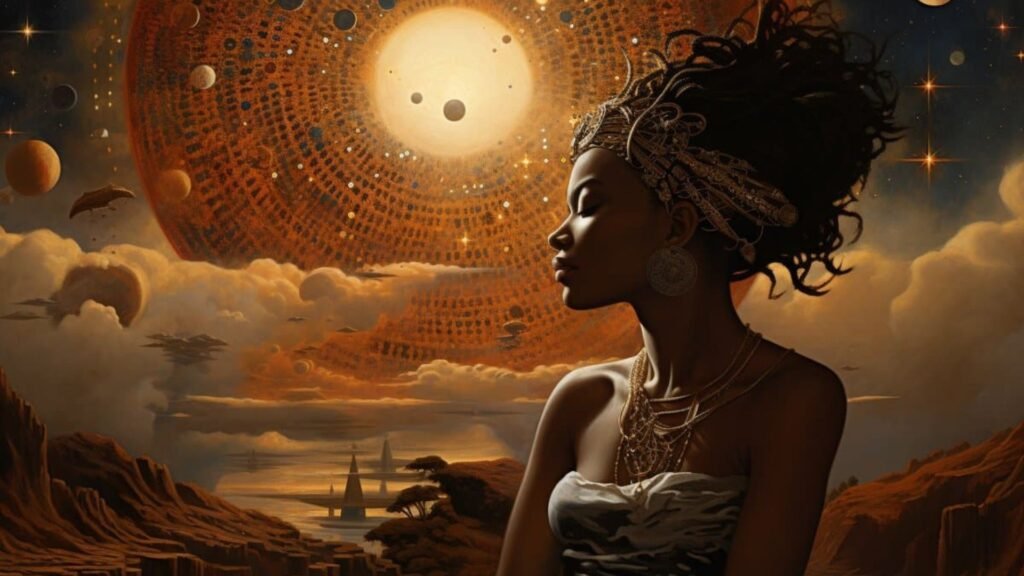Dreams have fascinated humanity for millennia, serving as a source of mystery and insight across cultures. Different societies interpret dreams in diverse ways, attributing various meanings and significance to these nightly visions. This article delves into the cultural interpretations of dreams across the world, highlighting how different traditions understand and value the dream experience.

Ancient Egypt
In ancient Egypt, dreams were considered a form of divine communication. Egyptians believed that gods and deceased loved ones conveyed messages through dreams. Temples often had “dream beds,” where people slept to receive divine guidance. Dream interpreters, known as “seers,” played an important role in deciphering these messages for individuals and the state.
Ancient Greece and Rome
The Greeks and Romans also viewed dreams as divine messages. They distinguished between “insomnium,” ordinary dreams reflecting daily life, and “somnium,” prophetic dreams with significant meanings. Temples dedicated to the god Asclepius, the deity of healing, often served as centers for dream incubation, where people sought health-related revelations.
Indigenous Cultures
Many indigenous cultures regard dreams as a vital part of spiritual life. For instance, the Aboriginal Australians believe that dreams connect them to the “Dreamtime,” a sacred era of creation and ancestral origins. In Native American cultures, dreams are seen as important spiritual experiences that can offer guidance, healing, and insight into personal and communal issues. Shamans often interpret dreams and use them in healing rituals.
Chinese Tradition
In Chinese culture, dreams are linked to the concept of Qi, or life force. Ancient Chinese texts, like the Zhou Gong’s Dream Dictionary, categorize and interpret various dream symbols. Dreams are thought to reflect the dreamer’s health, emotions, and future events. They believe that dreams can provide insight into the dreamer’s inner state and external circumstances.
Islamic Tradition
In Islam, dreams hold significant religious and spiritual value. The Prophet Muhammad emphasized the importance of dreams, and many Muslims believe that dreams can be a means of divine revelation. Islamic tradition categorizes dreams into three types: true dreams from Allah, dreams from the self, and dreams from Satan. True dreams are considered meaningful and may offer guidance or warnings.
Hinduism
Hinduism views dreams as an integral part of spiritual and psychological life. They are often seen as reflections of one’s karma and subconscious mind. The Hindu epic “Mahabharata” includes numerous instances of dream interpretations. In Hindu philosophy, dreams are thought to offer insights into one’s past lives and future possibilities.
Western Psychological Perspectives
In the West, the interpretation of dreams has been influenced significantly by psychological theories. Sigmund Freud’s psychoanalytic theory views dreams as manifestations of unconscious desires and conflicts. Carl Jung, on the other hand, saw dreams as a means of communication between the unconscious and conscious mind, filled with archetypes and universal symbols.
Japanese Culture
In Japanese culture, dreams are often seen as omens or messages from ancestors. The Japanese pay close attention to the symbolism in dreams, such as the appearance of certain animals or objects, which can be interpreted as indicators of future events. Traditional practices include seeking interpretations from elders or spiritual leaders.
African Traditions
In many African cultures, dreams are considered important sources of wisdom and guidance. The Yoruba people of Nigeria, for example, believe that dreams are a means through which the spiritual world communicates with the living. Dream interpretation is a communal activity, often involving discussions with elders or spiritual healers.
Conclusion
Dreams hold a unique and powerful place in cultures around the world. Whether seen as divine messages, spiritual experiences, or reflections of the subconscious mind, dreams provide a rich tapestry of meanings and insights. Understanding these diverse cultural interpretations can deepen our appreciation of the universal yet varied nature of dreams.




